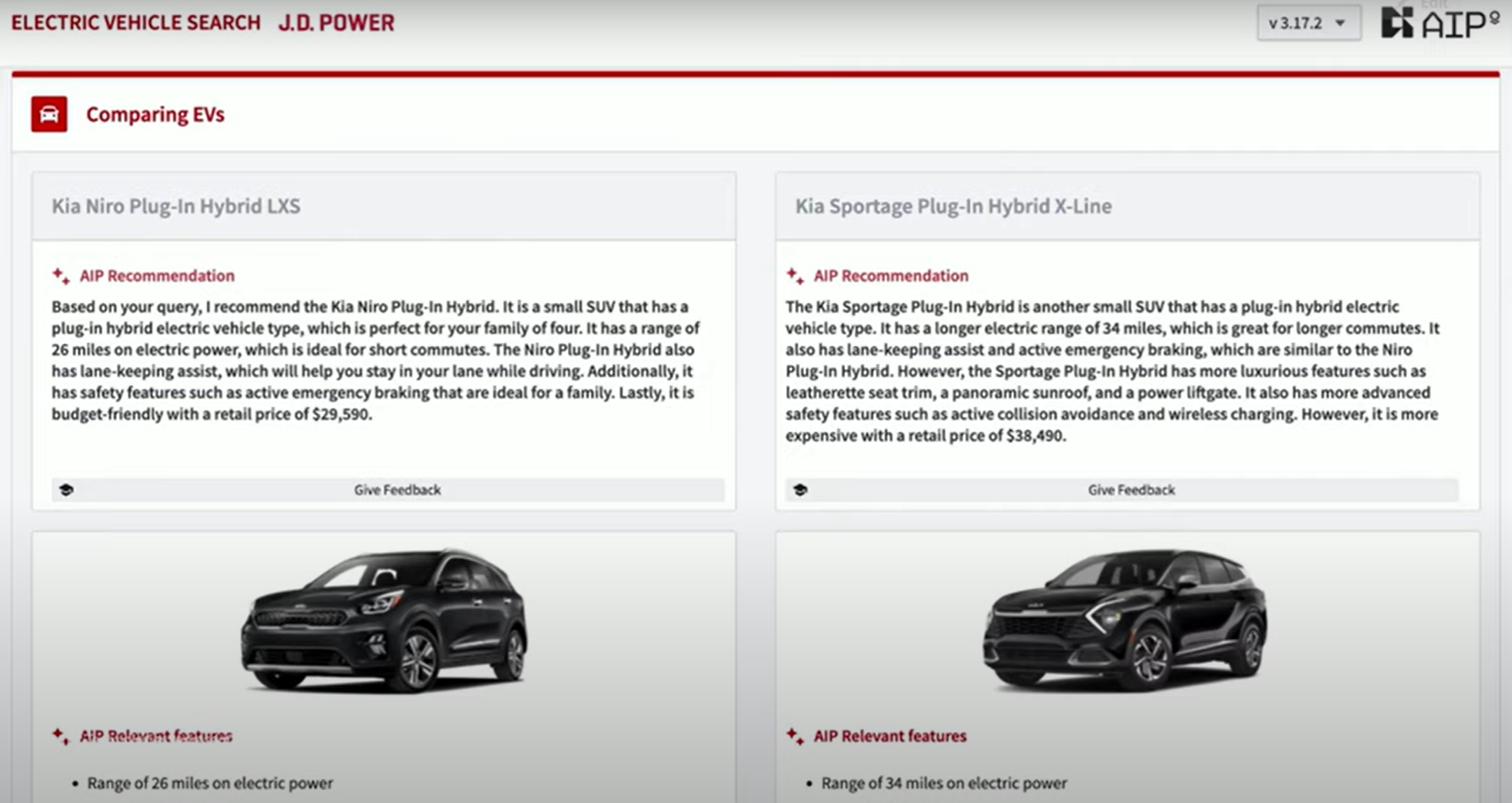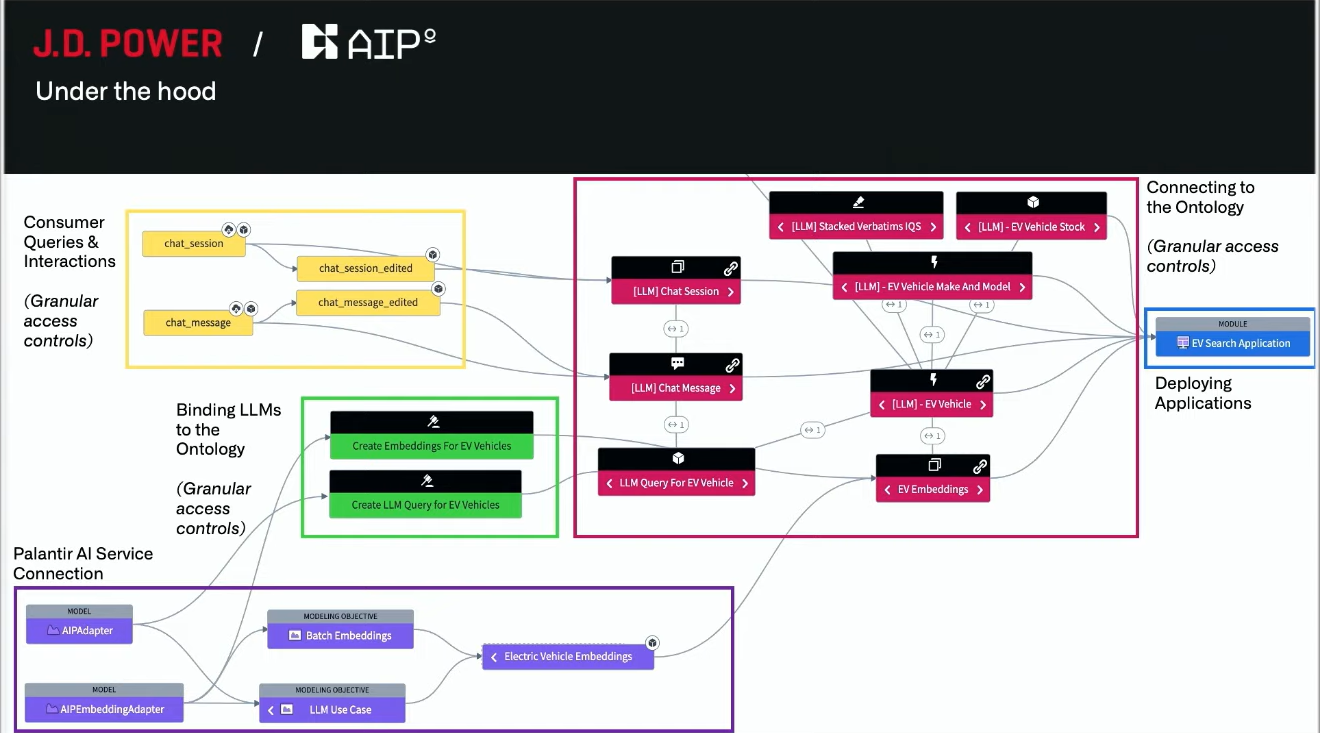J.D. Power, Palantir team up on generative AI apps for auto value chain
J.D. Power and Palantir Technologies will create generative AI and predictive analytics tools for the auto industry.
The two companies said the plan is to combine J.D. Power's vehicle configuration and performance data points with Palantir's Foundry and AIP platforms. That offering will be aimed at automakers, dealers, insurers and financing companies to provide insights via generative AI.
In many ways, J.D. Power is like other companies that find new data licensing models and partnerships. Generative AI and large language models are likely to monetize a bevy of proprietary datasets. For instance, Shutterstock has paired up with OpenAI on training data and technology collaborations.
For Palantir, J.D. Power's data on incentives, retail sales, valuations, vehicle configuration, service and warranty, inventory and customer experience will give it a foothold in the auto industry and showcase its platform.
So far, J.D. Power data on Palantir Foundry is being used to offer:
- Repair Analytics, an application that monitors warranty costs and gives manufacturers and dealers the ability to predict and manage repair costs.
- Intelligent Alerts, a system to track vehicle sales activity and trends so companies can optimize incentives in real time.
- EV Battery Health Analytics, a monitoring app that analyzes battery health in large fleets and provides data to manage performance.
- Digital Journey Optimization, a hub that combines customer engagement data with J.D. Power pricing and insights information to better target customers.

At Palantir's AIPCon conference, J.D. Power Chief Digital and Technology Officer Bernardo Rodriguez demonstrated the combination of the company's data with Palantir. The two companies have been working together closely in the last 6 months or so.
J.D. Power's demo focused on using its data and Palantir to train LLMs and then extended to other use cases.
Rodriquez said LLMs have made it easier to leverage disparate data sets and make them more accessible. "Our job is to build solutions that move the needle in the auto industry," said Rodriquez.

He added:
"What we've done is to field and aggregate data sets that show the inner workings of the auto industry. We have a complete view of the auto industry.
We decided a year ago to get into AI with more conviction."
Rodriquez said proprietary data sets from the likes of J.D. Power would be real time for LLM training relative to something like ChatGPT. Current data is critical given the money at stake. For instance, the auto industry spends $2.4 billion in incentives in a month.

